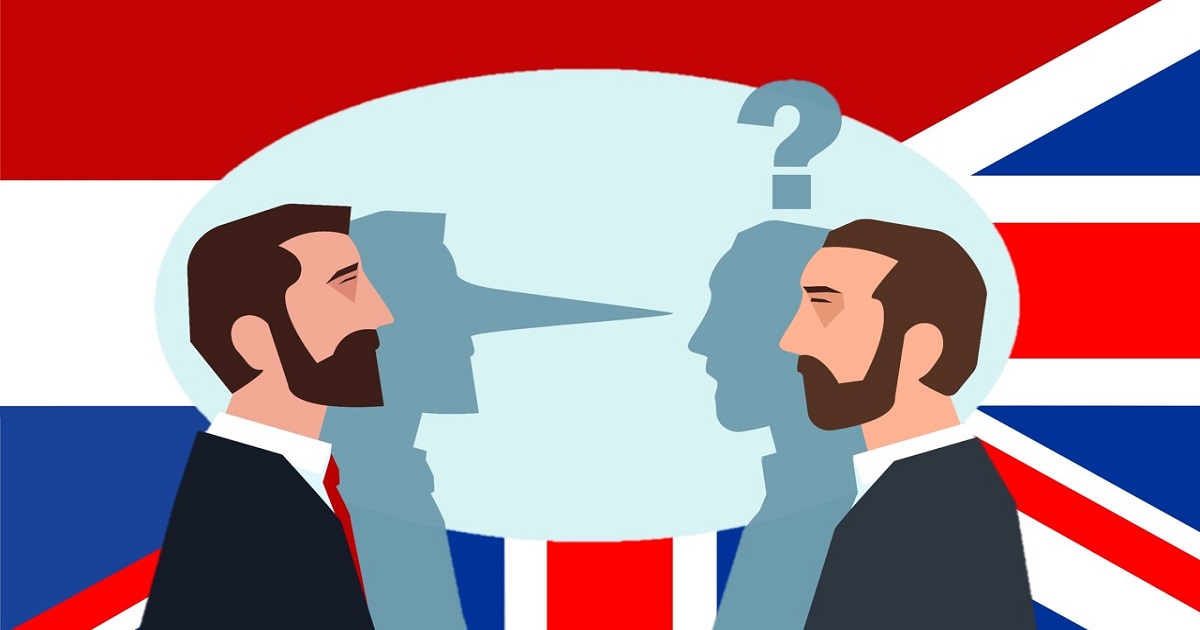False friends between English and Dutch
In this blog I talked about the fact that in Dutch there are a lot of similar words or loanwords from English. This gives you an advantage when you are learning this new language.
But beware!
There are some false friends among these words.
What are false friends?
False friends are words from different languages that sound or look the same, but have a totally different meaning.
You can always try to slip in an English word, there are quite a few similar words. But sometimes it can end up sounding a bit strange.
Let’s take a look at some of the most confusing false friends.
Meaning – mening
The same word but different meanings. ‘Meaning’ sounds a lot like the Dutch ‘mening’. But ‘mening’ in Dutch means ‘opinion’. If you translate ‘meaning’ you get a totally different word:
‘betekenis’.
So if you were to ask, ’Wat is de mening van de tekst?’ you are asking about the ‘opinion’ of the text.
Biljoen – billion
Talking about big numbers, things can get confused. Even more so if there are some false friends involved.
To make it clear: a miljard in Dutch is a billion in English.
That is 1,000,000,000 (or as written in Dutch: 1.000.000.000).
A biljoen in Dutch is a trillion in English: 1,000,000,000,000 (in Dutch: 1.000.000.000.000). And so it continues.
Willen – will
‘Willen’ in Dutch is a modal verb. It is used to express the desire to do something, as in ‘to want to’. But ‘will’ in English is a model verb used for the future tense. In Dutch you would use the verb ‘zullen’.
So to say that you want to go on holiday you say:
- Ik wil op vakantie gaan.
If you have it all organized and you are sure it is going to happen you use:
- Ik zal op vakantie gaan.
Concurrent – concurrent
A mistake often made by Dutch people speaking English. But the word doesn’t mean the same thing in the two languages.
In Dutch a ‘concurrent’ is a business competitor. In English ‘concurrent’ means ‘at the same time’.
File – file
Pronounced as fiele, this is the Dutch word for a ‘traffic jam’.
When you are listening to the radio you will hear ‘file-informatie’ every hour. The English word ‘file’ would be translated to ‘bestand’. Although, in online and IT language English loanwords are everywhere, ‘file’ is still ‘bestand’ in Dutch.
Glad – glad
- ‘Ik ben glad dat je hier bent.’
Seems normal? You just said that I am slippery / smooth that you are here. If you want to say that, okay. Otherwise ‘blij’ is a better word to use.
Trap – trap
- Het is een ‘trap’!
Don’t worry. In Dutch this isn’t a big deal. A ‘trap’ refers to the ‘stairs’. A ‘trap’ in Dutch would be a ‘val’.
Pet – pet
- Ik vind mijn …. uh.. pet echt lief.
If you want to say that you really like your baseball cap, it’s okay.
Talking about your dog, cat or fish, ‘huisdier’ is the word you want to use.
Smal – small
Small in English, is what we call ‘klein’ in Dutch.
To make it a bit more complicated, ‘smal’ in Dutch, is what we call ‘narrow’ in English. For example,
- ‘een smalle steeg’, a narrow alley.
Slim – slim
This false friend is similar to the last one. ‘Slim’ in English is ‘dun’ or ‘slank’ in Dutch. Mostly used to describe a person.
The Dutch word ‘slim’ on the other hand means ‘intelligent’.
- Een slimme man, means an intelligent man, not a skinny man.
Douchen – douche
In several languages, including Dutch, this is a totally normal word meaning to take a shower. But English speakers usually use the word to mean ‘to apply a stream of water’. Especially in the last couple of years this refers to the word for a hygiene product for women, or even a swear word.
Learn more?
In this course you will see more false friends.

Bart de Pau
online Dutch teacher & founder of the Dutch Summer School & Dutch Winter School



